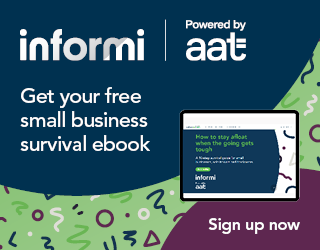Mart Abramov is the CEO of online tax specialist TaxScouts. Here, he looks at what aspiring business owners need to consider before deciding whether to register as a sole trader or a limited company
All businesses — whether large or small — need to have a legal structure in place, and the majority will need to choose between being a sole trader or a limited company. Both of these have their own unique advantages and disadvantages, and each have aspects that will suit certain businesses more than others.
So, if you’re in the process of planning a new enterprise, you’ll need to weigh up the pros and cons before deciding which will best suit your budding company. Here, I’ve shared the benefits and negatives of each type, to help you make the right choice for your growing business.
What’s the difference between a sole trader and a limited company?
A sole trader is a self-employed person who owns their business outright. It’s a very simple business model, and it’s fairly easy to set up — you can register as a sole trader online using the government portal. This type of business will not be registered at Companies House, and the owner has complete legal responsibility in the eyes of the law.
A limited company is a business which has its own legal identity, which is separate to the identity of the owners, shareholders, or directors. This means that the business is incorporated into Companies House as a legal ‘person’. The owners are then protected by a ‘limited liability’ — hence the name.
The pros and cons of being a sole trader
For many business owners, the most appealing aspect of becoming a sole trader is the simplicity of the process. While sole traders will need to carry out a self-assessment tax return every year, other than this there’s relatively little paperwork to handle. So, in many respects, it’s much more straightforward to run than a limited company, especially if you outsource your tax return each year. As such, it’s a very suitable option for very small businesses or a single self-employed person.
However, sole traders also have unlimited liability, meaning the company does not have a separate identity from that of the owner. So, a sole trader must take on a lot of financial responsibility. There are various financial risks and downsides, including:
- Should the business lose money or go into debt, then the sole trader can be held financially responsible. This could mean their personal assets are used to settle any debts, penalties or fees the business owes, including any property they own.
- Banks and lenders are less likely to lend to sole traders than limited companies, which can make it tough to secure new opportunities for expansion and investment.
- Sole traders pay tax on their business profits, so tax rates can be higher for sole traders than limited companies. So, once you reach a certain earnings bracket (usually around £25,000) it can be less tax efficient than trading as a limited company.
The pros and cons of being a limited company
A limited company is treated as a separate legal entity, which means that directors won’t be personally liable for any debts or liabilities. For this reason, a limited company is perceived to be more prestigious than a sole trader in the eyes of many other businesses — in fact, many contractors and agencies prefer to work with them, because they offer more legal protections and so seem like a more reliable bet.
While there are a number of benefits to going down this route, there are also few financial downsides, too. These include:
- The directors of a limited company need to handle a number of additional financial responsibilities that sole traders don’t need to worry about. These are called the director’s fiduciary duties, and they include filing full annual accounts and tax returns. This means there’s a lot more paperwork to do, and directors will usually need outside help to handle it all.
- Unlike sole trading companies, there’s a fee to pay when you incorporate.
- As the company name will be registered with Companies House, you’ll need to pick a completely unique business name. For some established businesses, this may involve a costly rebrand.
- Limited companies need to pay corporation tax on all forms of taxable income, including trading profits, investments, or chargeable gains (selling assets for a profit).
- Directors can pay themselves using company dividends, but as of April 2018, the tax-free allowance for this will be reduced from £5000 to £2000 (uk). So, this will cut into the total earnings you could claim back tax-free.
As you can see, there are a number of advantages and disadvantages to both legal structures — and what may work for one business will not necessarily work for another. Ultimately, it’s up to you to work out which model will prove most advantageous in terms of profitability, tax efficiency, and the amount of admin you’ll need to do. If you’re unsure, then it’s best to seek advice from your financial consultant.



